Wednesday, May 25, 2022 / 09:23 AM / by FDC Ltd / Header Image Credit: FDC Ltd
The anticipated Q1’22 GDP data has been released by the National Bureau of Statistics (NBS). As widely expected, real GDP growth sustained its positive trend for the 6th consecutive quarter. It grew by 3.11%, representing a decline of 0.88% relative to a growth rate of 3.98% in Q4’21. When compared to the corresponding period in 2021 (0.51%), it was higher by 2.6%. The slowdown in economic performance largely reflects seasonal effects (planting season) and the economic shocks from the Russian-Ukraine crisis. The impact of the war-induced global supply chain disruptions is more evidenced in the quarter-on-quarter GDP growth, which contracted by 14.66%.
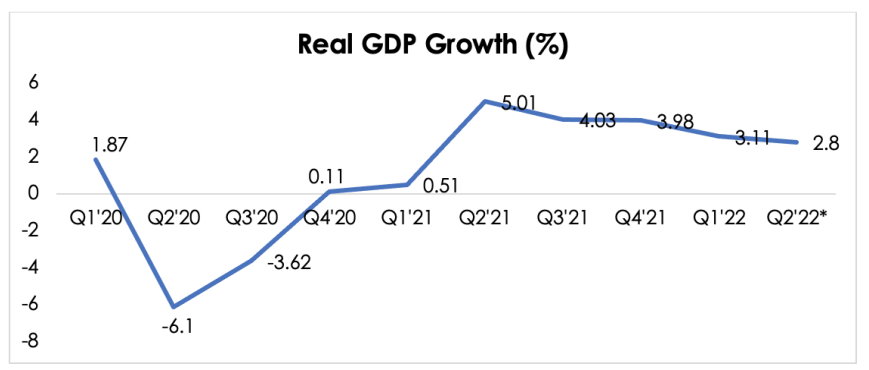
Oil Sector Remains a Major Drawback on Economic Growth
Despite the rally in oil prices, -oil sector growth remained in the contraction territory, recording a growth rate of -26.04% in Q1’22. This is 17.99% lower than -8.06% in Q4’21 and 23.83% below -2.23% in Q1’21. –The tepid performance was largely due to lower oil production owing to the lingering operational challenges, oil theft, vandalism and divestment by major IOCs. During the review period, oil production averaged 1.49mbpd, 0.67% lower than 1.5mbpd in Q4’21 and 13.37% below an average of 1.72mbpd in Q1’21. The sector contributed 6.63% to GDP in Q1’22, up from 5.19% in Q4’21 but lower than 9.25% in Q1’21.
Higher Energy and Food Cost Takes a Toll on Major Sectors in the Economy
Like most other countries, the Nigerian economy was badly hit by the global supply chain disruptions emanating from the Russian-Ukraine war. Energy and other commodity prices touched record high levels. For instance, diesel prices, which is the most widely used fuel for power generation and logistics, surged by almost 300% to N750/litre before declining slightly to N650/litre. Aviation fuel also spiked by about 200% to N500/litre. The resulting impact of this was a spike in overhead costs for businesses. Most firms had to pass on the additional costs to consumers in form of higher prices, further squeezing consumer wallets.
Sector Breakdown - 25 Expanded, 11 Slowed, 10 Contracted
Out of the 46 activities tracked by the NBS, 25 expanded, 11 slowed while 10 contracted. The good news is that most of the expanding sectors are employment elastic. As widely expected, agric sector growth slowed, mostly reflecting the impact of the planting season. Road transportation sector was largely affected by heightened insecurity and increased kidnapping activities, leading to a shift to other means of transportation, particularly air and rail. The attack on the Kaduna bound train on the Kaduna-Abuja railway track has made air transportation the safest option. However, the sector is also embattled with rising operating costs due to the spike in the price of aviation fuel, forex scarcity and currency depreciation.
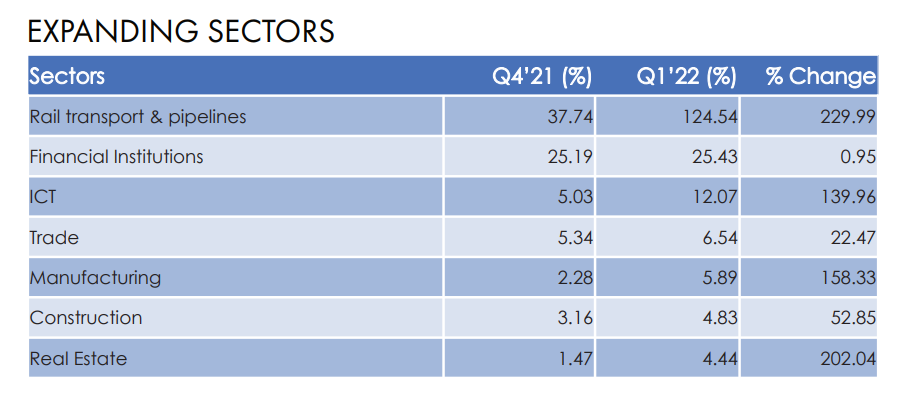
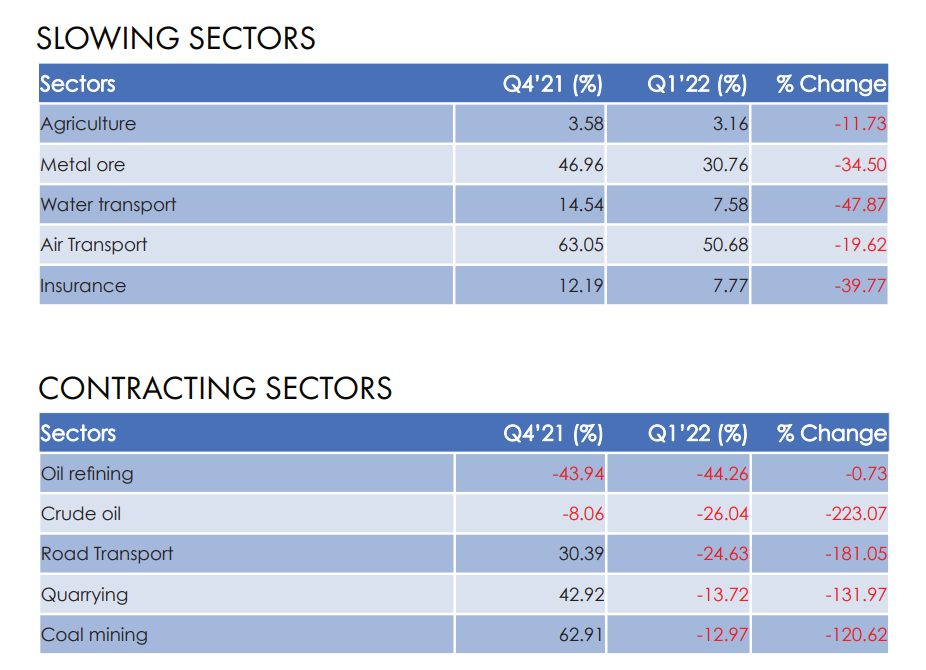
MPC Raises MPR to 13%, First Time in 70 Months
After maintaining status quo for 20 months, the Central Bank of Nigeria (CBN) raised the monetary policy rate for the first time in 70 months. The monetary policy committee (MPC) decision to raise the benchmark rate by 150bps from 11.5% to 13% was supported by concerns to rein in inflation, moderate capital flow reversal and strengthen the weak Naira which is currently trading above N610/$1 at the parallel market. The hike in interest rates, which is larger than expected, signals the commencement of monetary tightening. In line with the global trend, the CBN is committed to mopping up excess liquidity as a means of tackling demand-pull inflation believed to have been precipitated by its intervention programs aimed at supporting post-pandemic economic recovery. However, there are concerns that the current inflationary pressure is largely a supply shock phenomenon, which could require structural policy arsenal to contain. Furthermore, interest rate hike is expected to raise cost of borrowing for both government and private firms, while increasing their risk of default. On the other hand, it could help reduce speculation activities in the forex market as the currency begins to appreciate.
Outlook
Real GDP growth is expected to remain positive in the coming quarter but could slow to 2.8% due to seasonal factors and the lingering impact of the RussianUkraine war. The recent hike in interest rates may also pose downside risks to economic growth. Manufacturers are likely to begin to grapple with high borrowing cost while financial institutions could be faced with increased risk of default on loans lent to the private sector. Trade sector growth is expected to remain elevated due to the reopening of three of the land borders.
 Lagos, NG • GMT +1
Lagos, NG • GMT +1










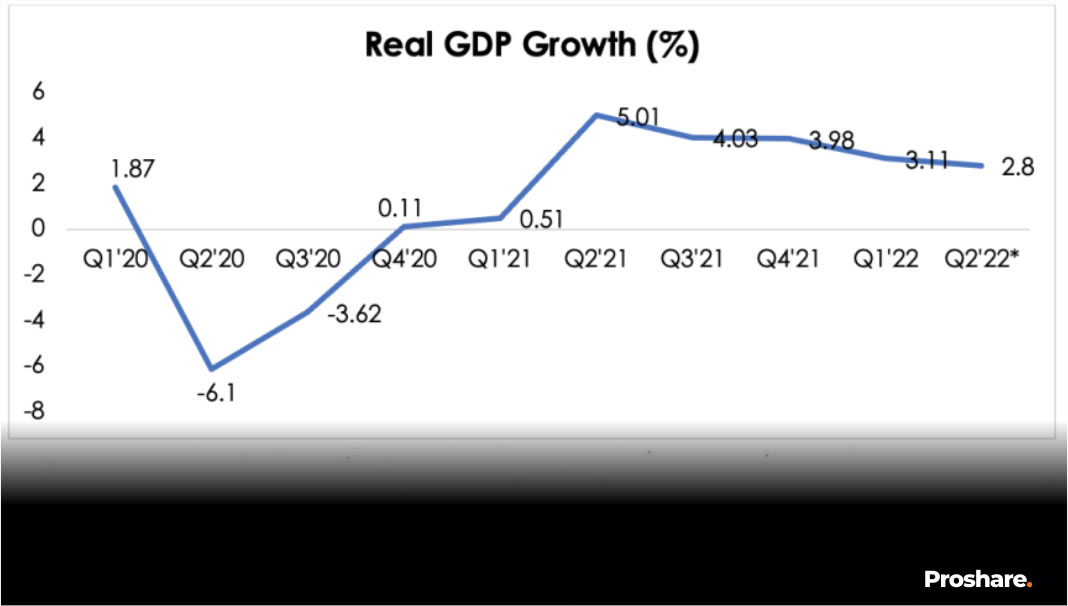
 433 views
433 views
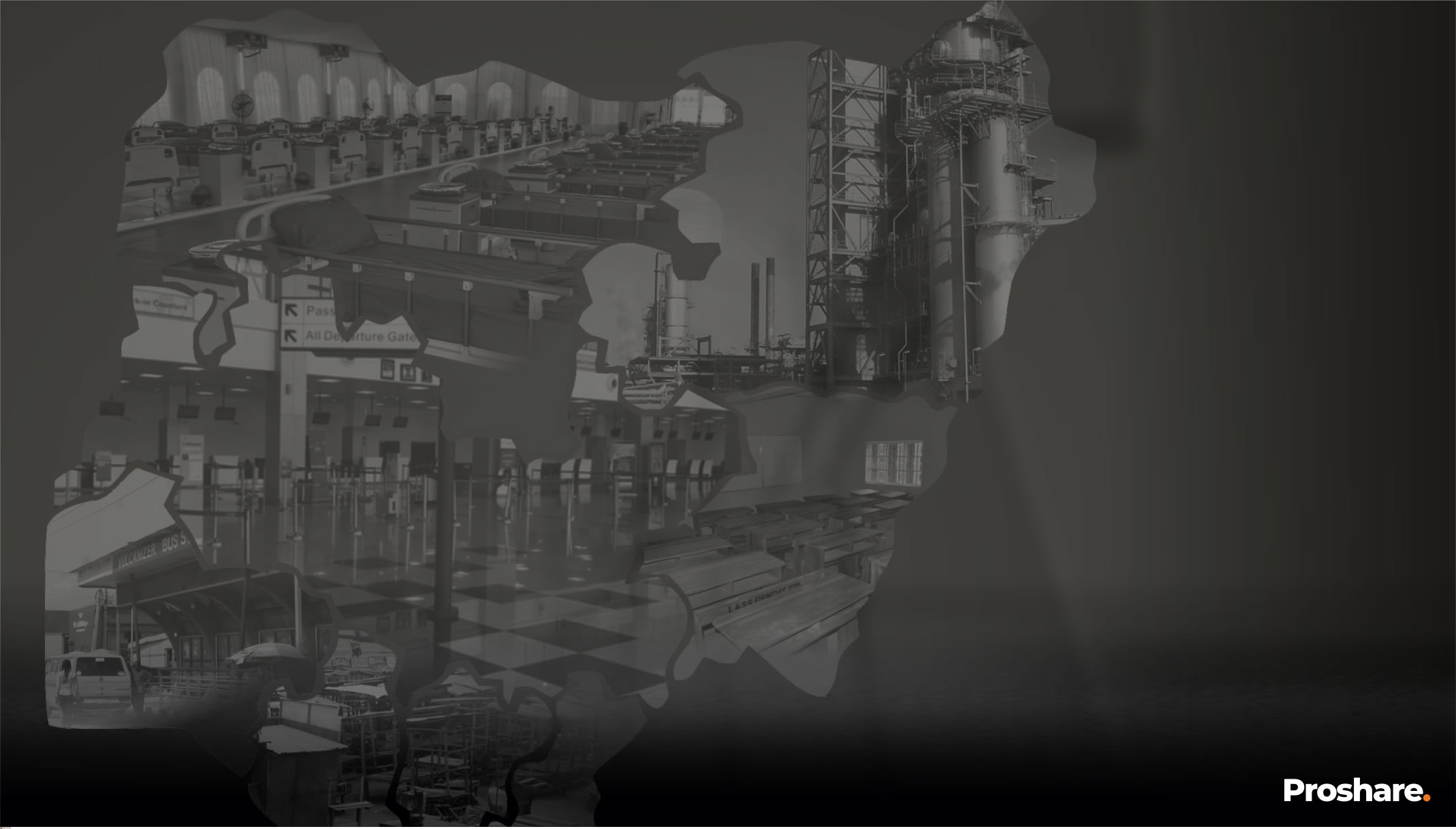
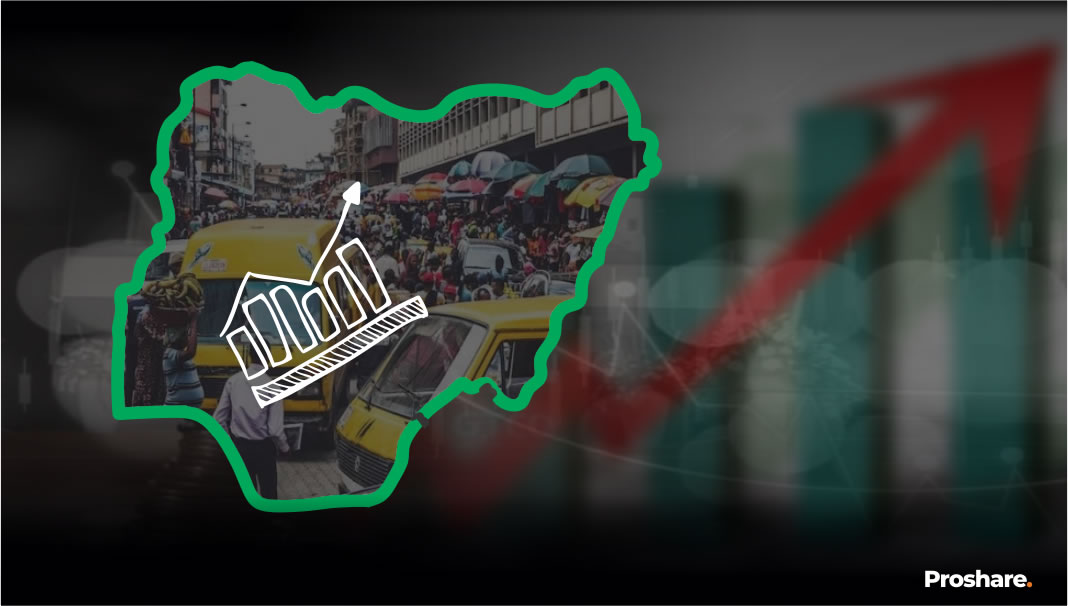
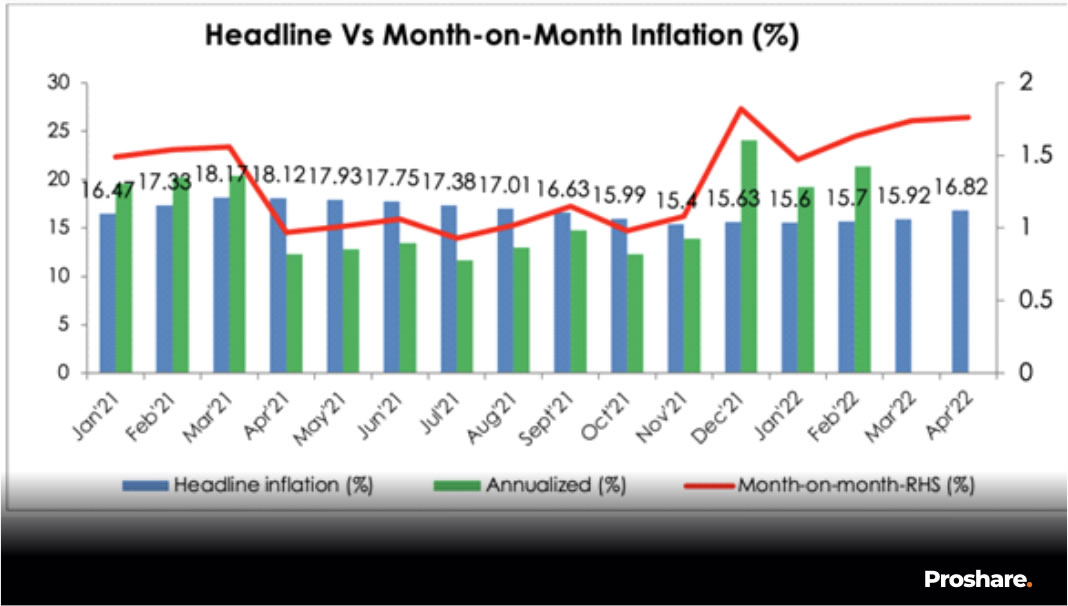
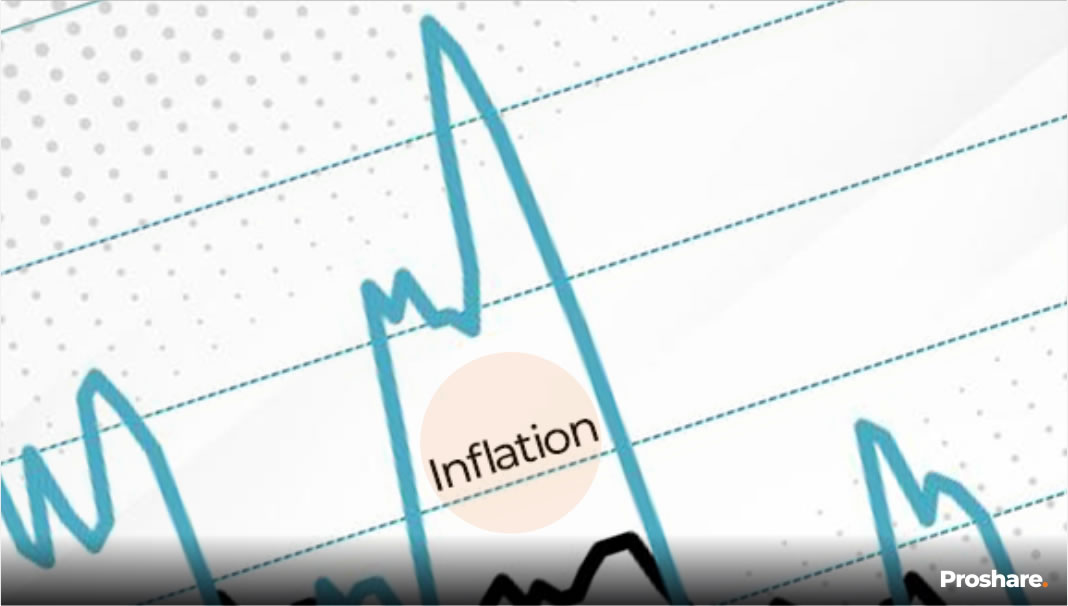
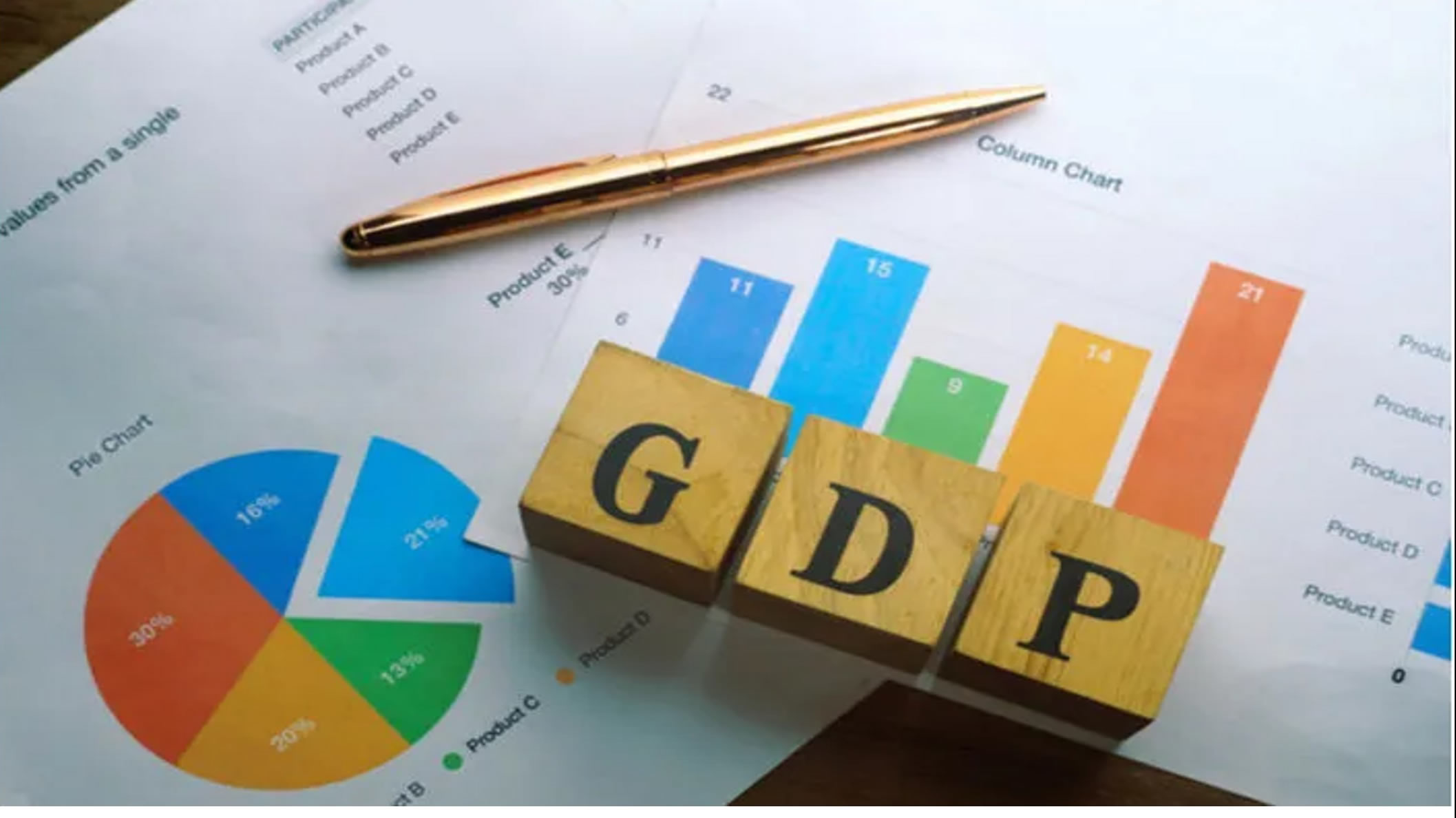
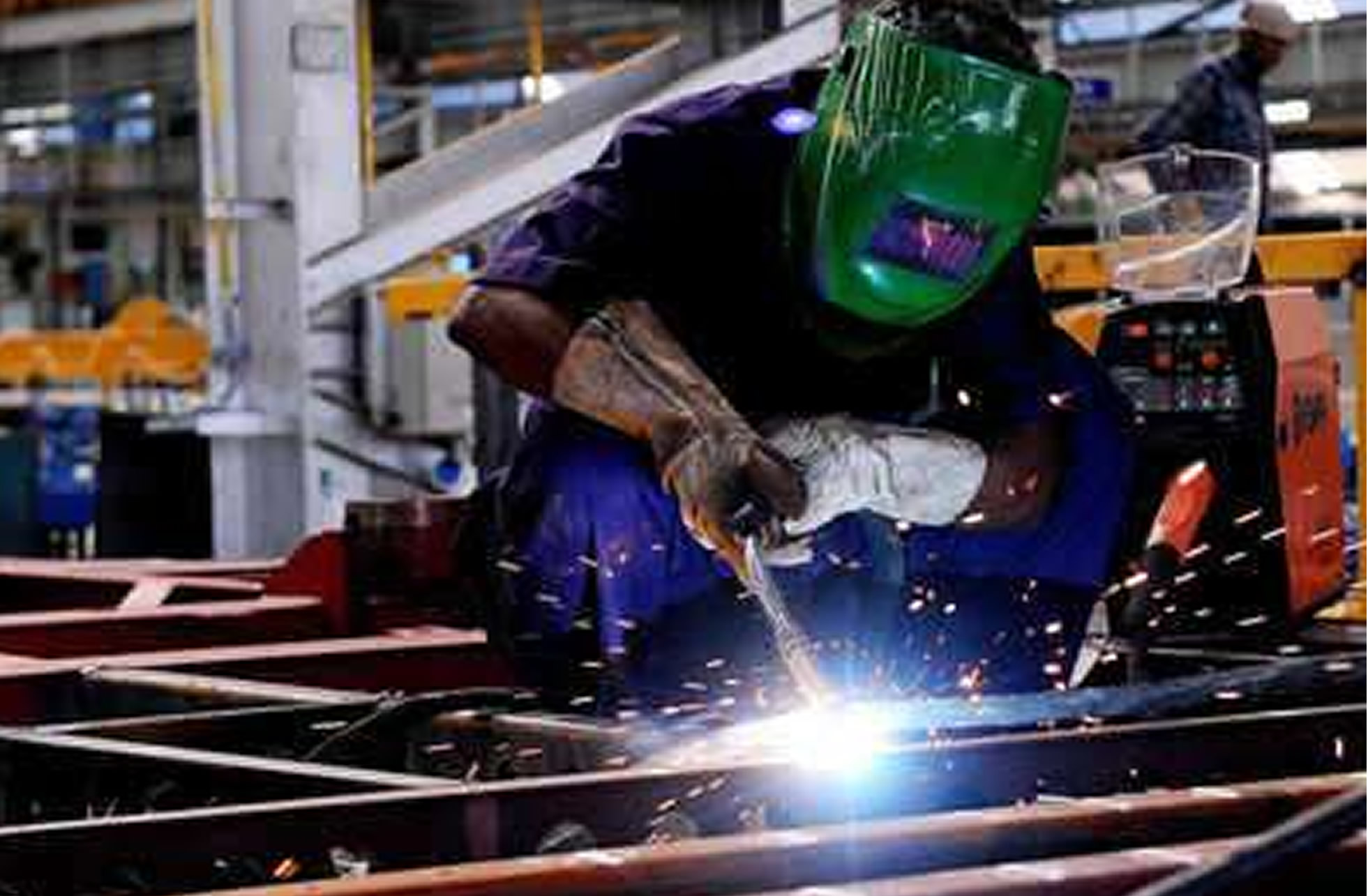





 Sponsored Ad
Sponsored Ad
 Advertise with Us
Advertise with Us









